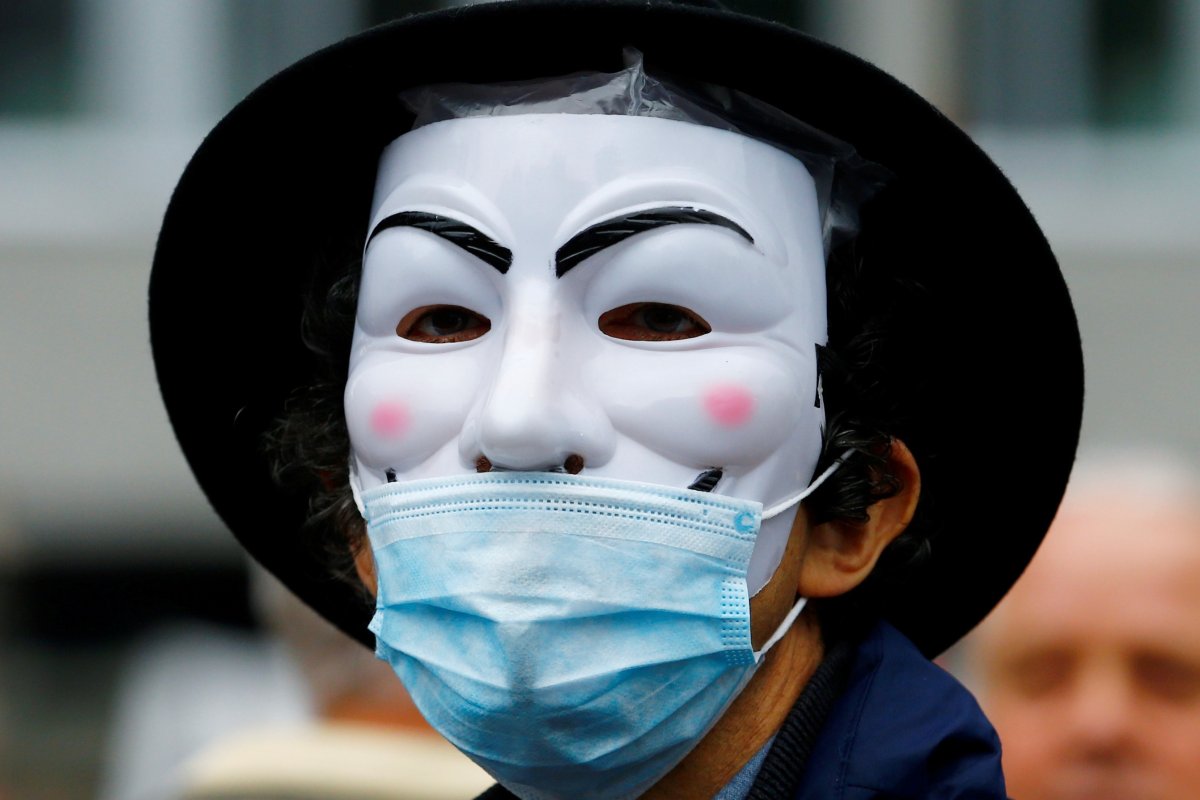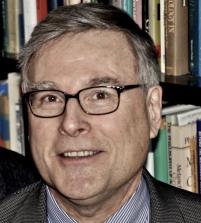
A Year to Mask and Unmask
What the pandemic has concealed and revealed about the conditions of possibility for our society
To note a truism: it has been a difficult, trying, sometimes fascinating, mostly exhausting year. How does one capture in one column the sense and non-sense of the year or so that has been 2020-2021? And how could such a rough sketch be a sighting of religion? One thing I would recommend, if I may, is that readers revisit the Sightings columns over the last 12-15 months to get a good sense of the times.
Alas, a recommendation to readers does not get me off the hook, since by fate or providence this is the last Sightings column before the annual summer break. Reflecting on the task staring me in the face, I realized that therein lay the answer. The most obvious marker of this time has been a "mask": sometimes a cloth or paper one, with the attendant creation of a virtual industry of mask designs. But more importantly, masks also serve as an apt metaphor for a tense and raucous time.[1] Consider the metaphor of the mask on several levels of reflection.
§1
On the surface level, and so closest to literal meaning, it was a year of debate over whether one would wear a mask at all. Billions of people the world over certainly did so, but many refused to mask themselves and their loved ones. Their refusal was supposedly to protest the infringement of the sacred right of individual freedom and preference. However, the same people in fact masked something else. What was hidden by their protest was often a deep suspicion of government and other public institutions, as well as a distrust of medical science.
The reality of a post-truth world was oddly revealed behind the disdain for mask mandates. The disdain erupted violently into public view on January 6, 2021. Now, too many citizens of this land and, oddly enough, their political representatives seek to mask the insurrection with the Big Lie of a stolen election. Many who decried the wearing of masks want to paper over the weakening of democratic institutions of the republic by its elected officials.
§2
On a more conceptual level, also unmasked during the pandemic were the gross inequalities of healthcare, as well as the systemic racism of brutal and deadly policing. As critical race theory has long argued, racism is the condition that makes many other systemic inequalities possible; it was a condition of this republic's founding and has continued as such throughout its history. "Critical" does not mean simple criticism, despite the misunderstanding of its detractors. Critique, from which critical is derived, is the work of uncovering the conditions that make something possible. And note that "critique" is founded on the insight that things are not always as they appear. What does this mean? Consider some examples of "critique" that span centuries.
John Stuart Mill argued that open and tolerant debate, rather than the appeal to authority, is the condition of social life needed to discover the truth. Karl Marx insisted that ideologies invert and so distort our grasp of actual social life. Immanuel Kant claimed that the categories of the mind and the forms of experience are what make human understanding possible, not a supposed pre-given world. Many other intellectual movements are "critical" in this technical sense: post-colonial theory; feminist critique; and, of course, critical race theory. These forms of critique seek a clearer and truer understanding of what conditions, concealed by common sense perception, has made "something" possible and operative in personal and social life . Of course, any theory can go wrong, be used to conceal what it hopes to reveal, or find a problem behind and within every social context. Sometimes, one must critique a form of critique!
Here too there is masking and unmasking. Rather than providing counter-arguments to the insight that in fact racism makes possible horrid inequalities here and around the world, opponents have attacked "critical race theory" as simply the criticism of white America. Sen. Josh Hawley (R-MO) stated on the floor of the Senate that "critical race theory" even holds, astonishingly, “that subjects like mathematics are inherently racist." And debates rage about teaching the dreaded theory in schools. Again, the truth of our history is in danger of being papered over, masked. One would think that education should be about seeking the truth, but that would require a sane checking of any theory that goes wrong, rather than a blind rejection of the theory out of hand.
§3
Some might wonder where there is a sighting of religion, actually or metaphorically, in these different ways of masking and unmasking. If time and space allowed, it could be shown how the first two metaphorical uses of mask/unmask are permeated by religious concerns, ideas, and symbols. But one does not have to look far: the Southern Baptist convention wrestled with concealed racism and sexual abuse in its ranks; an odd coalition of parties, far-right and centrist, ousted Netanyahu in Israel; India's Prime Minister allowed religious festivals, like Kumbh Mela, to continue, as well as other COVID super-spreader events that eventuated in thousands of deaths; and, here at home, the US Catholic Bishops were working on a document about the Eucharist that likely would have banned President Biden, a devout Catholic, from receiving communion. A few days later, reported in the Washington Post, the Bishops clarified that there would be "no national policy on withholding Communion from politicians."
Religion was everywhere this past year. As usual, religion was also, sadly, a mask covering the quest to gain and to hold political power. Yet sometimes the collusion of religion and politics is unmasked by the failure of good governance or proper use of religious rites. The dance between religion and politics, we have seen during the pandemic, is a deadly one. Both religion and politics are so good at masking and unmasking realities. And when the rhythm is right, they too often swirl together bringing death and insurrection. The separation of Church and State is a battle against mask-making. It is meant to promote justice.
§4
One more level of reflection, and a more general one in scope. What lays concealed and then revealed in this tumultuous and agonizing year is the democratic challenge to bind together freedom, equality, and justice in the endless and living task of self-rule. Cries for individual freedom without concern for justice and equal respect for all spreads disease and chaos. Equality without freedom or justice is found in the graveyards and funeral pyres around the globe. And justice without freedom or equal respect can devolve into fits of revenge, fits that stalk peoples and feed on human rage.
This year has masked and unmasked the fragility of democratic self-rule as the champions of freedom, of justice, and of equality have been pitted one against the other. Will the separation of powers and the values of equality, freedom, and justice within democratic self-rule abide? In the past year they have clashed, often to ruinous effect. Many people wonder aloud if the democratic experiment has run its course, so that the future belongs to petty tyrants and autocratic strongmen.
President Biden has said we are in a battle for the soul of the nation. That claim, seemingly, is the real sighting of religion this year. But with clarity about the dangers to the democratic soul, perhaps, just perhaps, we can labor freely, justly, and equally to secure a less deadly future.
[1] See Susan Sontag, Illness as Metaphor (Farrar, Straus and Giroux, 1978)
Photo: A doubly-masked demonstrator protesting against the Swiss government's masking and social distancing mandates in Zürich, August 29, 2020. (Reuters)
Sightings is edited by Daniel Owings, a PhD Candidate in Theology at the Divinity School. Sign up here to receive Sightings via email. You can also follow us on Facebook and Twitter. The views and opinions expressed in this article are those of the author and do not necessarily reflect the position of the Marty Center or its editor.


